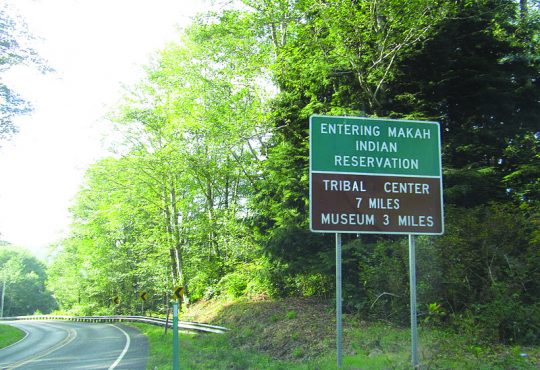Whether it’s The Big Siblings Program, Habitat for Humanity, Food Salvage or tutoring, the University of Puget Sound’s Center for Intercultural and Civic Engagement (CICE) provides many options to volunteer in our Tacoma community.
The Pathways Program aims to provide direction with all of these opportunities, as well as in-depth personal advising and programming to help students develop their own unique niche within the world of Civic Engagement and social justice.
Skylar Bihl, coordinator of the CICE, and student Mark Gilbert developed the program after the two attended a conference in Washington DC, along with several other students on staff at the CICE.
The University considered creating a civic engagement core requirement, but the Pathways program was created instead. “We want to make sure that students engage in Civic engagement not because they are forced to, but because they want to,” Bihl said.
“Our goal is to help students integrate what they are already doing.” Bihl added. “The students who created the program felt that things that they do on campus often exist in separate silos, clubs in one silo, academics in another silo, volunteering in another—we wanted to pull all that together.”
The four-year program includes various components—academic coursework; involvement with campus clubs and organizations; community service work; summits and conferences; demonstrations; as well as the Tacoma Passport, which provides trips into Tacoma to help students get to know the community they hope to serve. The first cohort of the program currently includes twelve students, and the program is still hoping to involve more students.
The Pathways Program assigns students an advisor who helps guide them in finding the lens through which they want to engage in social justice work. Advisors will teach students how to track their involvement and help them to specify their interests.
Students must meet certain criteria in the program, such as attending at least one social justice oriented conference or summit per year, like the Race and Pedagogy National Conference. Advisors help students keep track of their progress. Older students on staff at the CICE are currently serving as Pathways advisors.
The first year of the program is equivalent to a survey course, providing various Civic Engagement opportunities, and in the following years students will steadily narrow their focus. Advisors will help students plan how they want to meet their requirements and brainstorm options, such as what clubs to join. If students are successful in the program, they have the opportunity to become student advisors themselves after completing their second year of the program.
The Passport aspect of the program allows students to take field trips into Tacoma to explore the city in monthly outings. Students must attend three outings a year. The options for exploring Tacoma include visiting arts and entertainment venues, festivals, City Council meetings, and more.
The first trip of the year was a Museum night, where students visited several of Tacoma’s museums together. The goal of this facet of the program is to make sure students are invested in and understand Tacoma to better inform their efforts to make change. “You can’t do Civic Engagement in a place you don’t know,” Bihl said.
University of Puget Sound students can also keep track of their civic engagement and involvement process themselves with the CICE’s Student Engagement Log Form, an online tracking device for students to build a catalog of their experiences for themselves or for a resume.
The Pathways program attempts to synthesize the various aspects of engagement work on campus into one comprehensive journey. The requirements are designed to allow students the chance to sample a variety of approaches to civic engagement, whether in the classroom or beyond.
Students can get involved with the pathway program by contacting the CICE at cice@pugetsound.edu, or going into the CICE itself. Bihl says that enrollment for the program is still open and students are encouraged to get involved.



